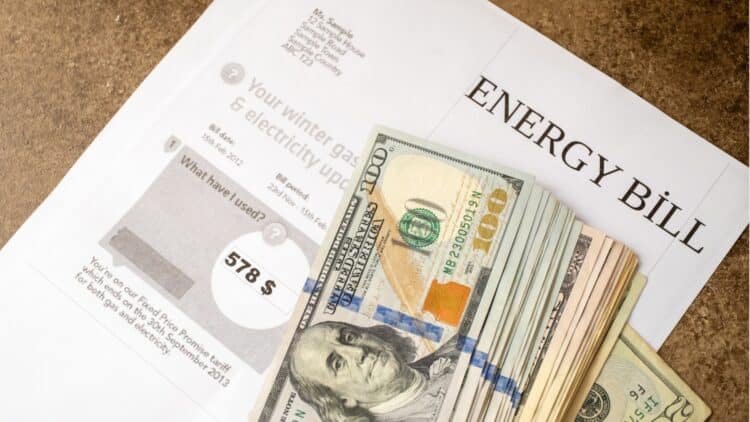The cold arrives, and with it begins the most wintry season of the year. But it’s not just Thanksgiving and Christmas that come with winter—it’s also the increase in bills due to heating usage. This is often a problem for citizens, who have to face this extra cost every year. That is why authorities usually implement social aid programs, such as the one from the New Jersey Board of Public Utilities (NJBPU), which is issuing $175 checks to residents. Among the companies eligible to receive this relief check are Public Service Electric and Gas, Jersey Central Power and Light, Rockland Electric Company, and Atlantic City Electric.
These payments have been defended by Governor Phil Murphy, who believes this aid is necessary to ensure that all citizens can use their heating and also cover the cost of their bills. This is not the only assistance program for utility services available, as they can also turn to the Payment Assistance for Gas and Electric (PAGE) Program, the Fresh Start Program, and the Universal Service Fund (USF), or the Low Income Home Energy Assistance Program (LIHEAP). Outside the state, there are also assistance plans for heating bill payments in Tennessee, Michigan, and Georgia.
How to fight the cold and heating bills in New Jersey
The arrival of cold weather usually represents an extra cost for citizens of the United States, as they have to deal with much higher heating bills. That is why there are social programs to help residents with this type of payment, such as the one implemented by the New Jersey Board of Public Utilities (NJBPU). Through this program, checks of $175 will be issued in seven installments, totaling $25 per month.
These payments will occur over seven months, starting in August 2025 and continuing until February 2026. This is not the only assistance provided by the NJBPU, as it also issued a $100 payment as energy bill assistance, which was distributed between the months of September and October. This credit is available to the 3.9 million residents of New Jersey who have their electricity account with one of the four public energy companies:
- Public Service Electric and Gas.
- Jersey Central Power and Light.
- Rockland Electric Company.
- Atlantic City Electric.
According to Governor Phil Murphy, the funds come from NJBU’s effort to provide more than $430 million “in historic direct bill relief to mitigate the peak in PJM [Pennsylvania-New Jersey-Maryland power grid] capacity costs, which coincides with the hottest period of the year and the highest electricity demand.” “My administration is advancing our commitment to affordability for our residential taxpayers by providing direct assistance to reduce the monthly cost of energy bills. No New Jerseyan should fear losing power, and we will continue working with BPU to ensure that necessary measures are taken to combat unsustainable energy bills for families and businesses”.
More assistance for heating bill payments
These are not the only active programs that residents can apply for to help with their bills. They also have access to:
- Gas and Electric Payment Assistance Program (PAGE).
- Fresh Start Program.
- Universal Service Fund (USF).
- Low-Income Home Energy Assistance Program (LIHEAP).
The Low-Income Home Energy Assistance Program (LIHEAP) is responsible for providing funds to very low-income residents to help with their heating and cooling bills. Eligibility requirements include having a utility bill and having gross income equal to or less than 60% of the state median. Additionally, the amount will depend on income, household size, type of fuel, and heating region.
On the other hand, the Universal Service Fund (USF), like LIHEAP, requires that income be 60% or less of the state median, will depend on income and the type of local heating, and provides an amount of $200 per month.
Aid outside of New Jersey
Of course, this is not the only state that offers this type of social program:
Tennessee
It has the Tennessee Housing Development Agency (THDA), which provides coverage to all 95 counties in the state. Applications are available starting November 1, and consist of one-time payments from $174 to $750 that will be made automatically to the energy supplier.
Michigan:
Residents who are customers with Consumers Energy will receive payments through the state’s Department of Treasury. Starting on January 1, customers can file a claim with the state’s Department of Treasury to receive the payment. The credit will be worth $250.
Georgia:
Residents will receive payments through the state’s LIHEAP program. The payments will be worth either $310 or $350, depending on their total gross annual household income and the size of their household.
